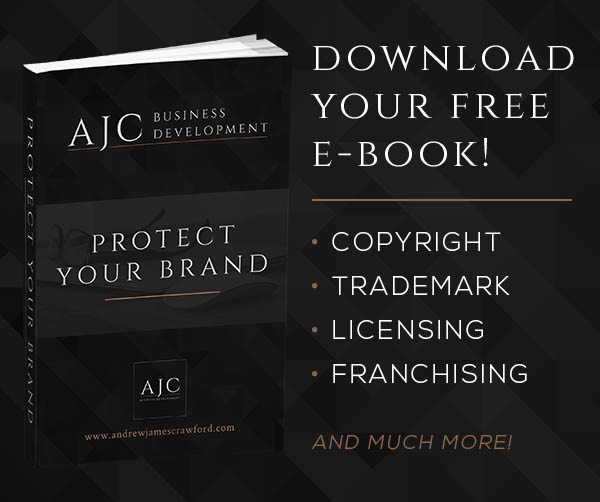Support Options for Self-Employed During Coronavirus
The government is implementing drastic changes amid the coronavirus outbreak to assist many individuals, including self-employed.
I have been asked by many of my self-employed friends and clients ‘Andrew what can we do to survive this?’ and so I felt the need to write a detailed article that outlines the current incentives the government is offering to individual self-employed people in the UK to help during this time of uncertainty.
Financial Support for Self-Employed Workers
This is the biggie for self-employed individuals and if you’re struggling I would suggest jumping on these options rather quickly.
Since we’re self-employed we aren’t eligible for sick pay, therefore the government has now made it easier for us to claim for Universal Credit and/or Employment and Support Allowance. These are all on a per-case basis so be sure to apply for these options immediately to find out what you’re entitled to.
If you have been diagnosed with Covid-19 or are self-isolating then you can claim for Universal Credit with immediate effect without needing to go to the Jobcentre. To do this go directly to the Universal Credit page on the government’s website to find out eligibility and claim – https://www.gov.uk/universal-credit
You can also claim for (in some cases, as well as Universal Credit) Employment and Support Allowance (ESA) which again relates to individuals diagnosed with, or self-isolating due to coronavirus and offers £73.10 a week, from day one of your sickness rather than the usual day eight.
To apply just visit here – https://www.gov.uk/employment-support-allowance/how-to-claim
The main bit of ‘small print’ here is that in order to eligible you’ll need to be over the age of 25.
Coronavirus (COVID-19) Self-employment Income Support Scheme
This isn’t technically available at the time of writing this (27th March 2020) but I wanted to mention it early on in-case you were unaware of this scheme. This is the main government incentive setup to help those of us who are self-employed and it will, in fact, help the majority of self-employed individuals, not everyone, but the majority.
This scheme will allow self-employed individuals to claim a taxable grant equal to 80% of your trading profits (profit averaged from previous 3 years of tax returns) up to a maximum of £2,500 per month for the next 3 months. The government have stated this 3-month period may be extended ‘if needed’. This will be paid in arrears and will not be paid to you until June 2020, but it’s worth knowing about it early on since you have to claim for this grant.
First and foremost, you can only apply for this scheme if you’re a self-employed individual or a member of a partnership. If that’s you (which it likely is since you’re reading this article!) then here are the other stipulations:
- You submitted your Income Tax Self Assessment tax return for the tax year 2018-19
- You were trading in the tax year 2019-20
- You are still trading at the time of applying for the grant and intend to continue the business into the following tax year 2020-21
- Your self-employed trading profits are less than £50,000 and over half of your total income is from self-employment (i.e you work full-time and have a small self-employed business on the side, you will need to show that your total income from self-employment is at least half of that total value of your income from all work)
As stated above, this may not be applicable to all self-employed people but it is the main source of support the government is giving to self-employed people.
UPDATE (June 2020): The government will offer self-employed workers a second and final grant in August 2020. Chancellor Rishi Sunak announced the Self-Employment Income Support Scheme (SEISS) would pay out a second grant worth 70% of monthly trading profits. Individuals do not have to have claimed the first grant to be eligible for the second.
UPDATE (Sept 2020): On the 25th September 2020 the chancellor announced a new job support scheme and a self-employed grant extension. The Self-Employment Income Support Scheme has been extended for six months, covering the period from November 2020 to January 2021. Those who are eligible will be granted 20% of their average trading profits, capped at £1,875.
UPDATE (March 2021): A major improvement in access to the self-employed scheme has become available. When the scheme was launched in 2020, the newly self-employed couldn’t qualify because they hadn’t filed the 2019 – 2020 tax return, but as the tax return deadline has now passed, as long as the individual has filed their 2019 – 2020 tax return, they can now claim the 4th and 5th grants.
Cash Grants
If you rent/own a business premises and currently receive the Small Business Rate Relief (SBBR) or Rural Rate Relief (i.e you pay little or no business rates), you’ll now be automatically given a one-off grant of £10,000 to help towards ongoing business costs. This will automatically be paid to you if your local authority has your bank account details, if you’re unsure whether or not they do then please check in with your local authority as this could be a blessing for many out there with business premises.
In addition those (again applying to business in the retail hospitality and leisure industries) who have premises with a rateable value over £15,000 and below £51,000 will be eligible for a one-off £25,000 grant or same as the above if you have a rateable value of under £15,000 – you will receive the £10,000 grant instead. Both again are automatically paid to you if your local authority have your bank details, if not please get that sorted asap with your local area.
UPDATE (March 2021): Current cash grants will end in March but a new restart grant will be available at the start of April.
- Non-essential retail businesses will receive grants of £6,000 per premises.
- Hospitality and leisure businesses, including personal care and gyms, will receive grants of up to £18,000.
Coronavirus Bounce Back Loans
This is a new scheme launching on 4th May 2020 designed to help out small and medium-sized businesses who have been adversely affected by coronavirus (COVID-19). It allows you to apply for a government-backed loan of up to £50,000, with 12 month’s free of interest, fees and repayment.
For more detailed information about this loan, please see my other article here – https://andrewjamescrawford.com/coronavirus-bounce-back-loan/
UPDATE (Sept 2020): On the 25th September 2020 the chancellor announced that individuals using the business bounce back loans will be given longer to repay the loans. This is applicable to new and existing loans and can now be repaid over 10 years, with payment holidays and interest-only repayment periods.
UPDATE (March 2021): Bounce Back Loan and CBILS are now coming to an end, so the government are introducing a new recovery loan scheme to take their place. Businesses of any size can apply for loans from £25,000 up to £10million through to the end of 2021. The government will provide a guarantee to lenders of 80%.
Deferring VAT and Income Tax payments
This feels like a ‘swings and roundabouts’ kind of support, the government have immediately deferred Valued Added Tax (VAT) payments for 3 months, so if you’re VAT registered you don’t need to pay anything for the next 3 months and also upon completion of your next self-assessment tax return, your Income Tax payments due in July 2020 under the Self-Assessment system will be deferred to January 2021. So it’s great if you are really strapped for cash right now or in the near future, however please bear in mind the word ‘deferred’ this doesn’t mean the government will forget about the VAT or tax you owe, it simply means brushing it under the carpet until a later date. The money will still be owed so please bear this in mind when opting to defer any tax.
Mortgage Payment Holiday
If you’re not able to pay your mortgage then all lenders have agreed to offer up to three months holiday from paying any mortgage repayments. This is on a per-case basis so be sure to call your mortgage lender directly to see what can be done.
Just to note the way in which this works from the majority of lenders is that this 3 months worth of mortgage/interest will be evenly added to the remainder of your mortgage repayments, so this will make your monthly payments go up, how much depends on your mortgage itself so be sure to double check this with your lender.
UPDATE (4th June 2020): The financial regulator has confirmed that those struggling to pay their mortgage due to coronavirus will be able to extend their payment holidays for three more months or start making reduced payments.
UPDATE (March 2021): The £500,000 nil-rate stamp duty band has now been extended and will end on the 30th June 2021. The nil-rate band will then be reduced to £250,000, until September 2021, when it returns to the original band of £125,000 from October 1st 2021. 5% house deposits will be back from April 2021 with a new ‘Mortgage Guarantee’ policy will being introduced. Lenders who provide mortgages to homebuyers who can only afford a 5% deposit will benefit from a government guarantee on those mortgages. Many major high-street banks have confirmed they will be accepting these 95% mortgages from April 2021.
‘Time to Pay’ Tax Owed
If you are currently paying off tax from previous self-assessment returns then the government has setup a helpline in which you can request to get more time to repay this tax back.
To do this call 0800 0159 559 and they will discuss your requirements on a case-by-case basis.
0% Business Rates for Retail, Leisure and Hospitality
If you run a retail, leisure or hospitality business with premises that pay business rates then the government has gotten rid of these payments, if your premises has a rateable value below £51,000.
You can also apply to your local authority to get this discount even if you aren’t within the retail, leisure and hospitality industries.
Currently these are all of the measures in-place by the government, more are meant to be on the way and I’ve listed those at the end of this article. So bearing all of these options in-mind, if you are self-employed and struggling with your income due to the coronavirus outbreak then my advice would be:
- Contact your mortgage lender to request a repayment holiday for 3 months – as long as it’s not going to cost you any (or much) more I’d suggest taking this opportunity as it’ll likely never happen again! Also whilst in contact with them be sure to check whether you going on universal credit will impact your chances for the remortgage applications in the future. This area of knowing whether going on universal credit will negatively impact future remortgaging will differ depending on your lender, if it doesn’t then move onto step 2!
- Apply for both Universal Credit and Employment and Support Allowance (ESA) just to help you in the interim period. This may not seem like much money however every little helps in these circumstances!
- Request to delay or lower your tax repayments if you are currently doing so.
- Check with your local authority to double check you won’t be charged for business rates and apply if you’re not eligible.
- Keep an eye out for future incentives due to launch soon which I’ve listed below.
If you follow all of these steps then you’ll be covering every base that is currently on offer by the government.
UPDATE (March 2021): The 100% businesses rate holiday will continue for all eligible business in retail, hospitality and leisure sectors through to the end of June 2021. For the remaining 9 months of the year, business rates will still be discounted by two-thirds, up to a value of £2million for closed businesses, with lower cap for those who have been able to stay open.
Coronavirus Business Interruption Loan Scheme
Provided by the British Business Bank, this will be a simple loan offer to help businesses that have a turnover up to £41 million who can apply for a loan of up to £5million and pay this back within 6 years. There will be no loan charges and the first twelve months will be interest-free. To apply, please find the link below:
Incentives Coming Soon
£500 Million Hardship Fund
Providing local authorities with access to £500 million Hardship Fund so they can provide more council tax relief to help economically vulnerable people and households.
Refunds for all Statutory Sick Pay for 14 Days
If you run a business in which you employ staff then the government will give you a full refund for 14 days worth of statutory sick pay for each employee that has had to go on sick-leave due to coronavirus.
This is coming into action very soon apparently, and employees don’t need to provide a GP note for this to be accepted.










I am wondering what is happening to those people already in receipt of tax credits and self employed?
I have much the same query, can you claim universal credit or ESA if you get working tax creosote and child tax credit, also UC states a limit of £16000 in capital, if you rent property and own your own home are you still eligible. And finally if I apply for UC will I be moved over from the tax credits after all this is over?
Hi am
Self employed and suffered from
Dyslexic and anxiety the anxiety is getting bad at the mo as I can’t work and can’t get through to anyone on the phone I have Universial credit but spoke to them on the 21st of this month before it got crazy am not sure what else I should do as form filling is very difficult for and I usual go to the advice shop as they help full on my forms for me if u could give me advice on what to do would be great thank you very much x